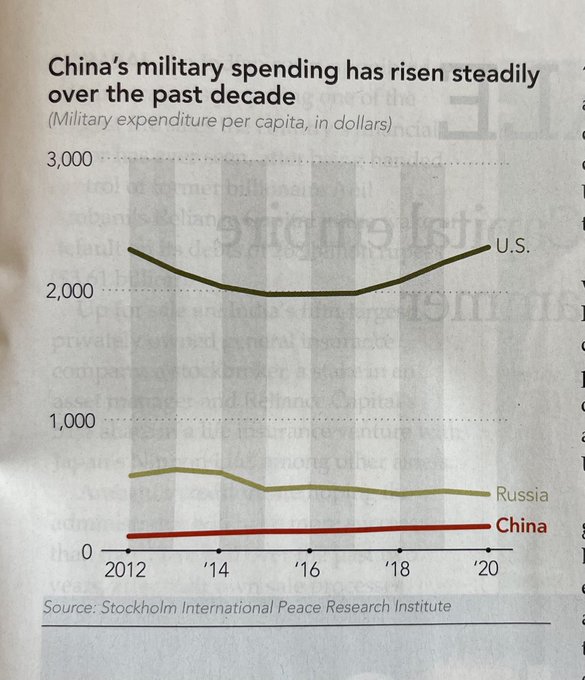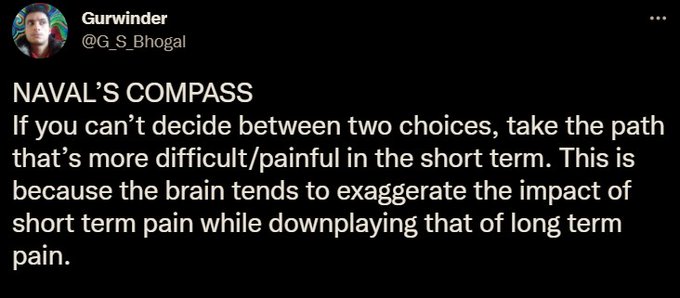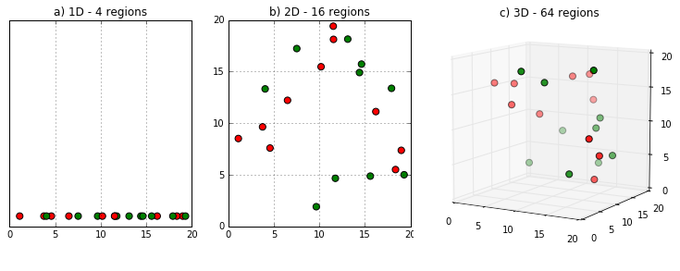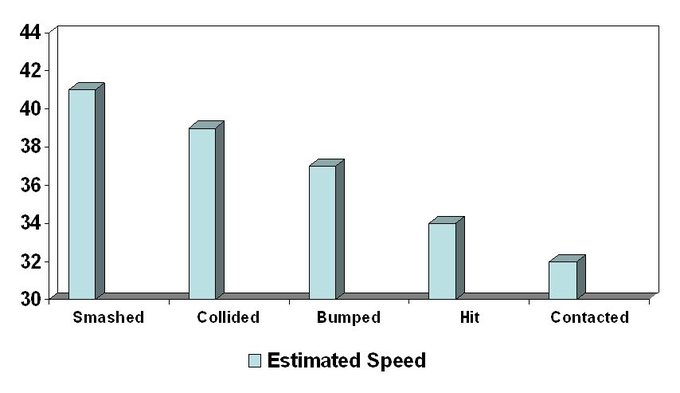
This is a great tweet shared by Scott Adams on his show, Coffee with Scott Adams. It is a list of 40 life hacks, pieces of knowledge that could change your life. Very interesting read. Took me longer than 7 minutes to read.
Here is the original tweet by @Gurwinder.
Here are the contents of the tweet:
1. Social Proof: When unsure how to act, people copy others, outsourcing their decisions. When Sylvan Goldman invented shopping trolleys, people didn’t want to use them because they seemed silly. So Goldman paid actors to use trolleys in his stores, and everyone quickly followed.
2. Twyman’s Law: The more notable the data, the more likely it’s wrong. This is because errors and data manipulation are far more common than genuine notable (i.e. surprising) results. Conversely, the more boring the data, the more trustworthy.
3. Spotlight Effect: We often get the anxious feeling that our every move is being scrutinized by others. The truth is, no one is paying as much attention to you as you are. People are too concerned with how they appear to others to care much about how you appear to them.
4. Relative Privation: An all-too-common fallacy where people dismiss a concern because something else is worse. “How can you talk about X when Y is happening?” By this logic, how can anyone ever talk about anything other than literally the single worst thing in the universe?
5. Expectation Effect: What you see is influenced by what you expect to see. In one example, researchers Peter & Susanne Brugger showed people this picture. In October, most people saw a duck. During Easter, most people saw a bunny. h/t: @d_a_robson

6. Shirky Principle: Institutions will try to preserve the problem to which they are the solution. It’s the best way to ensure their survival and growth. Examples include planned obsolescence and the various “industrial complexes” (military, prison, pharmaceutical, etc).
7. Gibson’s Law: “For every PhD, there is an equal and opposite PhD.” In matters of law & policy, anyone can find a subject-matter expert who supports their view, because having a PhD doesn’t necessarily make someone right, it often just makes them more skilled at being wrong.
8. Noise Bottlenecks: Consuming online content makes us feel like we’re learning, but 90% of the content is useless junk: small talk, clickbait, marketing. We’re filling our heads with noise, which is drowning out signal. As such, we feel we’re getting smarter as we get stupider.
9. Belief Perseverance: Our opinions are like bricks in masonry; each supports & is supported by others. Changing a belief means tearing down all beliefs atop it. Such demolition is hard to bear (easier to live with a skewed building) so people will rarely let that 1 brick budge.

10. Proteus Effect: In virtual spaces, people become like their avatars. For instance, using a “sexy” avatar tends to make a person more flirtatious. This suggests people’s personalities are largely a performance choreographed to social expectations.
11. Narrative-Market Fit: News & commentary are products, so they follow market pressures. The more a story fits a fashion or meets a strong consumer demand, the more likely it has been crafted purely for audience engagement, and the less you should trust it. h/t: @david_perell
12. Fredkin’s Paradox: The more similar two choices seem, the less the decision should matter, yet the harder it is to choose between them. As a result, we often spend the most time on the decisions that matter least.
13. Cunningham’s Law: The best way to get the right answer on the internet is not to ask a question, but to post the wrong answer, because people online are more interested in criticizing people than helping them.
14. Audience Capture: Many influencers make their name by attacking cultural foes. Their growing audience demands ever more attacks, so, like Aztec priests trying to keep the rain flowing, they get trapped in a cycle of offering blood sacrifices to appease unseen entities.
15. Burying The Lede: If a journalist wants to downplay the most important aspect of a story, they’ll bury it at the bottom of their article and mention it as briefly as possible. They’ll also reframe their headline and narrative to emphasize other aspects, like so:

16. Ben Franklin Effect: Getting someone who dislikes you to do you a favor can get them to like you, as people’s identities are a story they tell themselves, and if they’re kind to you they need to square their actions with their identity, so they tell themselves they like you.
17. Mismatch Theory: Moths evolved to navigate by the moon, a good strategy until the invention of electric lamps, which now lead them astray. Equally, humans evolved to be tribal, a good strategy until the Digital Age, where it now leads us to act like polarized goons online.
18. Agent Detection: For aeons, it was safer to presume an unusual arrangement was designed by an intelligence than that it was natural. This helped us avoid traps. The result is that we’ve evolved to presume anything unusual is designed. Hence creationism & conspiracy theories.
19. Problem Selling: Problem-solvers take an issue and break it down into small solvable chunks. Problem-sellers (e.g. politicians, the press) do the opposite: bundling many small issues into one big problem that looks insurmountable and terrifying.
20. Hyperbolic Discounting: Just as objects far away seem smaller, so do things far into our future. As a result, we are inclined to choose immediate rewards over future ones, even when these immediate rewards are much smaller. To overcome this bias, use @naval’s Compass:

21. Generation Effect: The best way to understand a topic is not to read about it, but write about it. The act of explaining something helps one to connect the dots and commit them to memory far better than the passive act of reading. (One reason I make these megathreads!)
22. Guerrilla Information War: Conquerors once expanded territory by seizing land, but with the Digital Age it became more efficient to expand virtually by seizing minds. World War III is already happening, but it’s being fought not for land but for clout.
23. Extended Cognition: Our eyes are no longer our eyes. They’ve been reduced to optic nerves relaying what’s seen by our new sense organs: phones & computers. We now see much more, but by extending our nervous systems outside ourselves, we’ve exposed them to a vulturous world.
24. 48-Hour Rule: Our minds are in constant flux, and our stated opinions are often just flickers of untamed inspiration that we’d disown upon reflection. So, what if we had a 48 hour grace period to reflect on and retract our words before we were judged? h/t: @ScottAdamsSays
25. Irony: On reflection, I no longer think this is a workable plan:

00
26. Curse of Dimensionality: The more detailed you make your data, the less insightful it becomes. Adding just 1 extra parameter to a graph causes the graph’s volume to expand exponentially, dispersing the contained datapoints and negating meaningful associations between them.

27. Reactive Devaluation: We judge a message by the messenger. In 2002, researchers Moaz et al showed Israelis a Palestine peace plan. When told it was authored by Palestinians, the participants rated it as far less fair than when told it was authored by the Israeli government.
28. Van Restorff Effect: Things that stand out are more likely to be remembered. As such, news stories that are most unrepresentative of reality tend to be our most persistent representations of reality.
29. Trait Ascription Bias: We tend to view ourselves as having a fluid personality that adapts to the environment, while viewing others as having fixed personalities. “I acted unreasonably because I was under pressure. He acted unreasonably because that’s just who he is.”
30. Wittgenstein’s Ruler The less you know of the measurer compared to the thing being measured, the less the measure measures the measured and the more it measures the measurer. E.g. if a stranger says most people are leftist, this is a better indicator the stranger is rightist.
31. Via Negativa: We have a better understanding of what is not than of what is, e.g. we don’t know if studying will make us an expert, but we do know not studying won’t. Therefore, when in doubt, base decisions on avoiding what you should not do instead of doing what you should.
32. Misinformation Effect: New info affects old memories. Researchers Loftus & Palmer showed people car crash footage, then asked how fast the cars were going when they smashed/collided/bumped/hit/contacted. The estimations depended on the specific verb used in the question:

33. The Fisher Protocol: Leaders are often detached from the consequences of their decisions. Roger Fisher suggested implanting the country’s nuclear codes into a volunteer. To launch nukes, the President would have to personally kill the volunteer and thereby confront reality.
34. Ideograph: Tyrants gain and maintain power by claiming to represent a higher authority: God, Nation, Justice, the People. These are intangible abstracts, to which any requirement can be attributed, authorizing the tyrant to do as he pleases. (see also: Glittering Generality)
35. Antiroutine: To create original output, consume unusual input. Avoid trending videos, NYT bestsellers, widely cited papers. Instead. read ignored texts, plumb the past for forgotten ideas. Step outside the zeitgeist so you can see it with fresh eyes. h/t: @mmay3r
36. Nocebo Effect: Harmless substances can make people feel ill if they think the substance is harmful. According to a recent meta-analysis, most adverse effects of Covid jabs are not caused by the vaccine but by fear of the vaccine! https://jamanetwork.com/journals/jamanetworkopen/fullarticle/2788172
37. Gaslighting: The most misused word. It’s not simply lying, it’s trying to make someone doubt their sanity, like in the film Gaslight. E.g. Zersetzung was a Stasi psyop to sneak into homes and rearrange furniture and reset clocks to convince dissidents they were going crazy.
38. Idiocy Saturation: Online, people who don’t think before they post are able to post more often than people who do. As a result, the average social media post is stupider than the average social media user. Worth remembering whenever Twitter dumbassery drives you to despair.
39. The Opinion Economy: The rise of social media as the primary mode of interaction has caused us to overvalue opinions as a gauge of character. We are now defined more by what we say than what we actually do, and words, unlike deeds, are cheap and easy to counterfeit.
40. Signaling: Our social behaviors are calibrated to demonstrate our genetic fitness to other humans, primarily to the opposite sex so we can fulfill our biological imperative of procreation. Essentially, each of us is just a marketing campaign for our DNA.
The Day Warrior
How to find more content from The Day Warrior:
If you enjoyed this newsletter, please subscribe.
If you want to provide feedback, please take The Day Warrior Survey.
If you want to have a deeper discussion about this subject, please get in touch with The Day Warrior.
Follow me on X for daily short and long-form content: @thedaywarrior.
My LinkedIn information is here: https://www.linkedin.com/in/the-day-warrior/
I am also on Instagram: @thedaywarrior.
My website is http:/thedaywarrior.com.
"Never blindly accept what you read online. Always challenge it with an open and critical mind."
